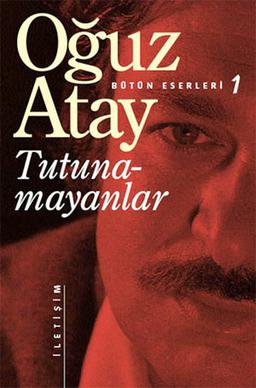Tutunamayanlar: Difference between revisions
No edit summary |
No edit summary |
||
| Line 22: | Line 22: | ||
}} |
}} |
||
'''''Tutunamayanlar''''' (in Eng. '' |
'''''Tutunamayanlar''''' (in Eng. ''Erectus Disconnectus'') is the first novel of [[Oguz Atay]], one of the most prominent Turkish authors. It was written in 1970-71 and published in 1972. Although it was never reprinted in his lifetime and was controversial among critics, it has become a best-seller since a new edition came out in 1984. It has been described as “probably the most eminent novel of twentieth-century Turkish literature”[http://portal.unesco.org/culture/en/ev.php-URL_ID=19184&URL_DO=DO_TOPIC&URL_SECTION=201.html]. This reference is due to a UNESCO survey, which goes on: “it poses an earnest challenge to even the most skilled translator with its kaleidoscope of colloquialisms and sheer size.” No translation has yet appeared in any language. It teases the well-established norms of the Turkish bourgeois world by a style which only "the disconnected" could empathize with. |
||
[[Category:1972 novels]] |
[[Category:1972 novels]] |
||
Revision as of 10:39, 19 July 2011
 İletişim Yayınları, 39th Edition | |
| Author | Oğuz Atay |
|---|---|
| Language | Turkish |
| Genre | Stream of Consciousness |
| Publisher | İletişim Yayınları (İstanbul) |
Publication date | 1972 |
| Publication place | Turkey |
| Media type | Print (Paperback) |
| Pages | 724pp |
| ISBN | 975-470-011-7 |
| OCLC | 54857185 |
Tutunamayanlar (in Eng. Erectus Disconnectus) is the first novel of Oguz Atay, one of the most prominent Turkish authors. It was written in 1970-71 and published in 1972. Although it was never reprinted in his lifetime and was controversial among critics, it has become a best-seller since a new edition came out in 1984. It has been described as “probably the most eminent novel of twentieth-century Turkish literature”[1]. This reference is due to a UNESCO survey, which goes on: “it poses an earnest challenge to even the most skilled translator with its kaleidoscope of colloquialisms and sheer size.” No translation has yet appeared in any language. It teases the well-established norms of the Turkish bourgeois world by a style which only "the disconnected" could empathize with.
